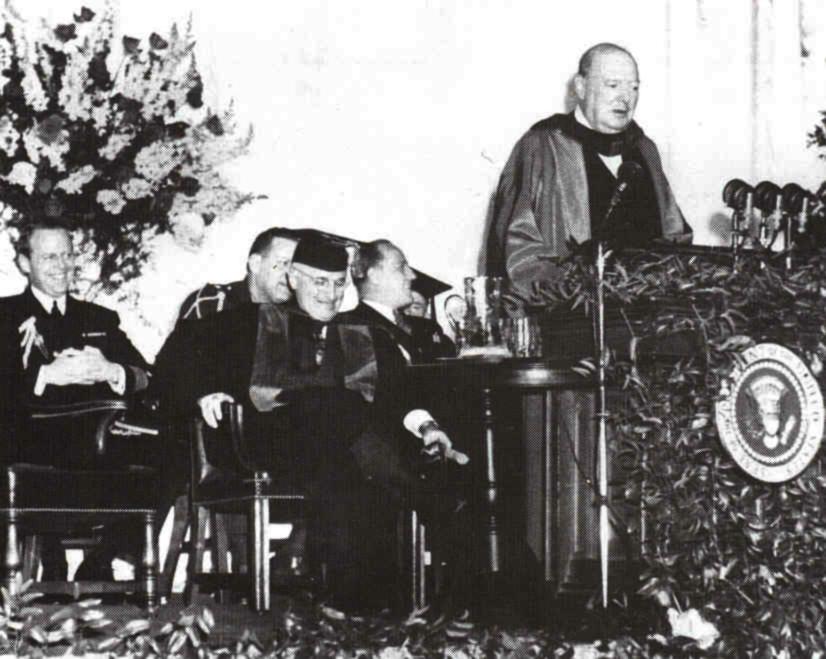 |
| Churchill at Fulton Missouri |
Churchill begins by recognizing his location and audience and humanizing himself, proclaiming that these were his thoughts, and not necessarily Britain's. He continues by identifying his audience, praising America and its democracy, accepting them as the superpower of the world and essentially tells them that "with great power come great responsibility." He then uses assonance to describe the three important qualities necessary to promote democracy: "constancy of mind, persistency of purpose, and the grand simplicity of decision."
With this framework in mind, he presents the crux of his speech, the "over-all strategic concept" for the future, with three steps to bringing peace and identifying two main aggressors - war and tyranny. He personifies them as "gaunt marauders," that "swoops down" upon the hardworking people of the west while the threats of communism and Asia "glare them in the eye." This helps the audience visualize what is occurring under communist rule and the threat it poses to Western democracy.
As he continues to flesh out the three steps necessary for avoiding war, specifically addressing the need for the United States to stand with Europe in a world organization (UNO), reminding without need to say how well the United Nations worked without the US. In what is one of the most powerful parts of his speech he declares that they all needed to ensure that it would not be a sham or "a frothing of words" or "a cockpit in the Tower of Babel" but a "true temple of peace." He concludes this part by calling for camaraderie among English speaking people, uniting Britain and America with thier desire for peace.
As he moves to the second part of his speech, Churchill famously identifies the "iron curtain" that had fallen to demonstrate the ideological differences between communism and democracy. He uses repetition to both call for American cooperation and to prevent the dangers of another war breaking out.
By identifying these major problems and proposing cooperation and understanding going forward Churchill advocates for deliberate action through a united body as the way to avoid war. Although he may not have been heeded on every account, Churchill undeniably helped identify the problems that would come as the world moved forward and solutions that would help bring peace.

I admire Churchill's ability to see things as they are. He could have sugar coated the things he was saying in order to try to gain more popularity, but he chooses instead to be completely honest about the things that have happened and that could happen. He reminds me of Elder Jeffrey R. Holland. Elder Holland is infamous in the Church for being openly blunt, and I think that's why most members like listening to his talks above all other speakers. We like things to be given to us in their rawest form.
ReplyDeleteI like that you point out that Churchill simplified his "strategic concept" to 3 steps for peace against 2 aggressors. It seems separating ideas out like that makes a lasting impression in people's memories.
ReplyDelete